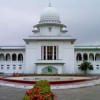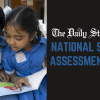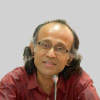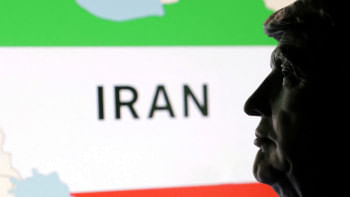News Analysis: An exam question to ignite bigotry

The bizarre and clearly communally inspired section in this year's HSC Bangla question paper is a dangerous occurrence that could easily have been overlooked had it not been doing the rounds on social media. The questions were based on a part of the Bangla paper's creative section. The prose goes like this: Two Hindu brothers Nepal and Gopal have a dispute over land and take the issue to court. In order to teach his older brother a lesson, Nepal sells a portion of the land to a Muslim who, during Eid-ul-Azha, sacrifices a cow in front of Nepal's house. And when Nepal sees this, he is so traumatised that he decides to leave the country and move to India with his family.
The storyline is incendiary, to say the least. It is bound to hurt the Hindu community's religious sentiments, which seems to be the aim. The subsequent questions placed in relation to the passage proves the point. They try to compare the actions of Nepal with Mir Zafar, the infamous military general who betrayed Nawab Siraj-ud-Daulah, joining hands with the British leading to his defeat and death of the nawab. Comparing a Hindu character gone astray with one of the most reviled Muslim characters in our history can only be described as motivated. This particular segment of the question paper has been used with the intention of fanning communal sentiments, portraying Bangladesh as a country where Hindus must leave their homeland because of bigotry. Why would such a controversial theme be part of a board exam? Why should such communal ideas be presented to college students? Most importantly how did this segment creep into the question paper when there are specific guidelines about making sure no question is formulated that disrespects religion? Why didn't the moderator -- the last person who has the authority to critique a question and even scrap it -- remove the offensive section and alert their colleagues?
The education board has identified five teachers involved in preparing and moderating the question and a probe has been started. This is encouraging, though it does not erase the fact that this is not a one-off incident of how our national education curriculum has been tampered with. Unfortunately, there have been other attempts to "de-secularise" the national curriculum. In 2017, as if to comply with the demands of Hefazat-e-Islam, a Qwami madrasa-based group, some poems and prose by non-Muslims were excluded from school textbooks. link https://www.thedailystar.net/opinion/the-big-picture/disturbing-deviations-childrens-books-1348375
Writings of famous poets and writers were scrapped because the authors were either non-Muslim or the content they wrote was considered to be somehow contradictory to Islamic thought. This includes Humayan Azad's poem "Boi" (class 5 textbook) that encourages students to read books and avoid texts that promote insularity and narrowmindedness. Gulam Mustafa's "Prarthhona" (Prayer) that pays tribute to the Creator, Jasimuddin's "Desh" (motherland), a philosophical songby Lalon Shah, Rangalal Bandhyapadhay's "Swadhinota", Sunil Gangopadhyay's "Shakota Dulchhe" about childhood and friendship, Rabindranath Tagore's poem "Bangladesher Hridoy" (Bangladesh's heart), a patriotic poem about the poet's motherland and Kazi Nazrul Islam's essay "Bangaleer Bangla"..
Funnily enough, it was virtually impossible to nail these deliberate attempts to communalise textbooks on anyone. According to a Prothom Alo report at the time, no one from the National Curriculum and Textbook Board (NCTB) or the National Coordination Committee (NCC) or the editors and writers of the textbooks seemed to know how these omissions took place. This took place despite the fact that according to the rules, changes cannot be made to textbooks without the knowledge of the NCC and the textbook editors.
As far as we know, these dropped texts that have been part of the school curriculum since independence and aligned with the secular values of Bangladesh's liberation movement and the constitution, have not been restored.
Eminent educationists and cultural activists have strongly objected to these illogical omissions, pointing out the dangerous effects it will have on young people who are the future leaders of this country. We are already facing serious challenges to our liberation spirit from religious extremists who sometimes resort to violence to prove their point. The horrific images of the attacks on Buddhist temples in Ramu, Hindu temples and houses in Narail, Nasirnagar, Cumilla, Noakhali and countless other places, are haunting reminders of how threatened our much-cherished communal harmony is.
But what is more frightening is the government's disturbing tolerance of bigotry and communal acts. Religious sentiments, however flimsily they can be interpreted, have taken precedence over freedom of speech and the right to practise one's own religion (other than the majority's faith) as guaranteed by our constitution. This is why we have the abhorrent sections of the Digital Security Act that allows law enforcers to arrest anyone who is deemed to have "hurt religious sentiments" whether it is because of a post from a fake Facebook account or a metaphysical expression in a Baul song. Now our children are in danger of catching the communal bug through textbooks that omit the works of great minds who have promoted inclusivity, diversity, and tolerance -- all the values necessary for an enlightened society and which are integral to any education system. The much talked about question in this year's HSC Bangla question paper indicates a stealthy attempt to show Bangladesh as a communal nation where there is no place for followers of the Hindu faith or any other faith other than Islam.
So, what does all this mean? Is Bangladesh's national education curriculum being infected with the disease of bigotry? If so, why is the Awami League government, the champion of our Liberation War which was very much a movement against racism and religious prejudice, allowing it?

 For all latest news, follow The Daily Star's Google News channel.
For all latest news, follow The Daily Star's Google News channel. 








Comments